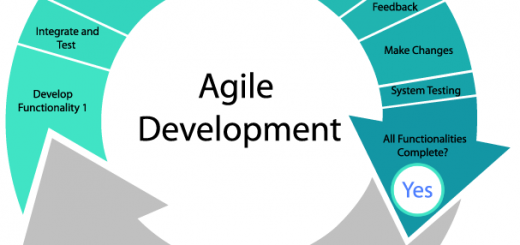Driven by developments in neural networks and artificial intelligence, it has advanced significantly recently and may potentially completely transform sectors, including custom software creation. Even though AI is currently limited, its quick advancement is creating new opportunities in a wide range of sectors. One area where using AI technology and methods is expected to revolutionize is custom software development, as we’ll examine.
Automating Coding
One important method AI is automating coding is using systems that convert natural language to computer code. An AI may, for instance, examine plain English textual descriptions of what a developer wants the code to do and generate the necessary code. Comparing this method of natural language processing to handwriting coding saves enormous amounts of time.
Furthermore, code generation via AI methods like deep learning can be done automatically by learning from huge code datasets. Using patterns seen in current codebases, the AI system may learn common sequences and structures.
AI is also being used for automatic code completion and recommendations. The AI examines what developers have typed while they work by hand and, using its training data, suggests what to type next. This speeds up development generally by enabling developers to accept AI-generated snippets that meet their needs.
Improving Software Testing
Artificial intelligence is revolutionizing software testing in several key ways:
Automated test generation – AI can automatically generate test cases and data to cover different code paths and scenarios. This saves significant time compared to manual test case creation.
Smart test execution – AI test execution tools can dynamically adjust tests based on code changes, auto-heal tests, and optimize test suites for maximum coverage and efficiency. This improves test stability and reliability.
Anomaly detection – Machine learning algorithms can detect bugs and issues that would be hard to find through manual testing. By analyzing code, test results, logs, and other artifacts, AI spots anomalies that may indicate defects.
Test reporting and analytics – AI collates test results, generates visual analytics, identifies trends and patterns, and produces intelligent test summary reports. This provides deeper test insights.
Predictive maintenance – Historical test data is used to predict outcomes of future tests and the quality of upcoming releases. Teams can prioritize testing accordingly and address potential issues proactively.
By automating mundane tasks and amplifying human tester capabilities, AI enables more thorough testing coverage in less time. Software teams can focus on higher value, creative testing while AI handles the heavy lifting. The result is better quality software delivered faster.
Enhancing Data Analysis
Artificial intelligence is transforming how data is analyzed to build better software. AI techniques like machine learning can detect patterns and insights in large datasets that humans may miss. This allows developers to understand user needs and fine-tune applications.
For example, AI can analyze usage data to detect bugs or identify areas for improvement. By processing huge amounts of behavioral data, machine learning algorithms can pinpoint usability issues and enhance features based on how customers use an app.
AI data analysis also enables more powerful predictions to improve software functionality. Predictive algorithms can forecast future trends and user needs. This allows developers to proactively build features to meet upcoming demand. Data-driven predictions result in software that dynamically adapts to real-world usage.
Personalizing User Experiences
AI techniques like machine learning can analyze user behavior and preferences to adapt interfaces and experiences for each customer. For example, AI can track how a user interacts with an app over time. It can learn what features they use most, how they navigate, and where they get stuck. The app can then automatically customize its interface to highlight the most relevant features and simplify workflows for that user.
AI-powered software can also make intelligent recommendations based on user data. If a user shows interest in a certain product category, the app can suggest related items tailored to their tastes. The more the app learns about the user, the more personalized its recommendations can become.
Beyond custom interfaces and recommendations, AI enables software to have natural conversations with users. Chatbots powered by natural language processing can understand context and hold personalized dialogues. This creates software that feels like an intelligent assistant tuned to each user rather than a one-size-fits-all static program.
Increasing Efficiency
AI is transforming how custom software is developed by optimizing workflows and processes. By analyzing past workflows, AI can identify inefficiencies and bottlenecks. It can then suggest improvements, such as adjusting task scheduling and resource allocation.
AI algorithms can also automate repetitive development tasks, like code reviews and documentation. This frees up developers to focus on higher-value work. Intelligent chatbots leverage natural language processing to handle common developer queries, reducing interruptions.
Process mining techniques give insights into workflow execution. This helps identify optimization opportunities. For example, determining which processes have excessively long cycle times. AI recommendation engines can then suggest ways to streamline and improve efficiency.
Automating Deployment
AI is playing an increasingly important role in automating the deployment and maintenance of software systems. Rather than relying solely on human developers and IT professionals, AI techniques like machine learning can handle many deployment tasks automatically.
For example, AI systems can detect when new code is ready to be deployed based on signals like successful builds and test pass rates. The AI then handles technical tasks like building containers, pushing to registries, updating configurations, and rolling out code—all without human intervention.
AI also assists with critical post-deployment tasks like monitoring and alerting. By analyzing metrics and logs, AI can identify performance issues, outages, and other problems in real time. The AI can then take corrective actions like restarting components or rolling back deployments again without needing a human developer.
Conclusion
In many respects, AI is profoundly influencing the creation of bespoke software. AI is automating code, strengthening data analysis, optimizing software testing, augmenting security, raising productivity, and automating deployment. The future for artificial intelligence in software development is rather bright. Automation and enhancements throughout the software development lifecycle are anticipated to increase as AI techniques progress.
Artificial intelligence will open up engineers to concentrate more on creative and high-level work while routine and repetitive tasks are automated. AI-adopting companies will be able to develop quicker and better software. The need for AI-savvy software engineers will only increase in the next years.




